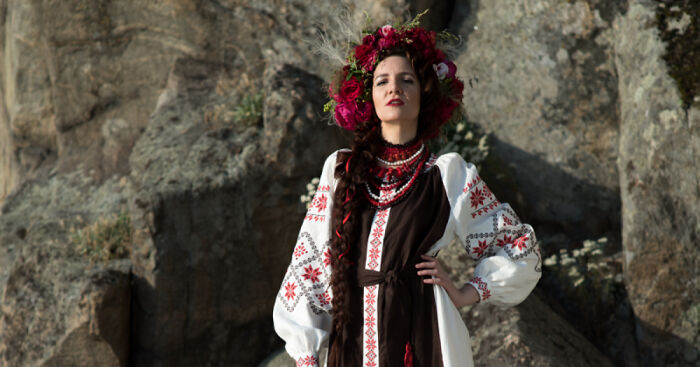
New Mural “Nezlamna” Set To Commemorate The Strength Of The Ukrainian People (16 Pics)
Before the demolition of the so-called ‘Moscow House’ in Vilnius, Lithuania, the neo-fresco ‘Do peremogi/To victory’ will be auctioned off in a sale in aid of Ukraine. The team behind this work – artists from Lithuania and Ukraine, as well as a unique robot from Estonia – are joining forces once more to decorate the centre of Vilnius this autumn with a new mural dedicated to the strength of Ukraine and its people.
To mark the occasion of Ukraine’s Independence Day, an international creative team comprising Artscape (Lithuania), the Lithuanian National Commission for UNESCO, art laboratory ‘Kiaurai sienas’ (Lithuania), public organisation Postlomograafia klubi (Estonia), and independent artists from Ukraine and Lithuania (Lina Šlipavičiūtė, Tetiana Drobotia and Elena Tita), will present this impressive new work of art, dedicated to the people of Ukraine. In October, a neo-fresco entitled ‘Nezlamna/Unbreakable’ will be installed on a building in the centre of Vilnius to commemorate the strength and unbreakable spirit of the Ukrainian people.
The story of the two murals
The new mural ‘Nezlamna’, measuring several hundred square metres, will be installed this autumn in a prominent location in the centre of Vilnius, on a building overlooking the River Neris, the main artery of Vilnius. The artwork will continue the story that began in 2022 with the mural ‘Do peremogi’ on the so-called ‘Moscow House’.
“The upcoming artwork will continue to tell the story of how, more than a year after the start of the war in their country, the Ukrainian people have not given up defending themselves, and are ready to go the distance to defend their freedom,” says Lina Šlipavičiūtė, artistic director of the project. “Ukrainians are defending themselves and believe in victory. They believe in the human right to be free, and they themselves embody the values that are important to us all. This is the story that the new neo-fresco tells.”
In the second neo-fresco, the message of Ukraine’s unwavering determination to defend its freedom and independence continues to be carried by the same strong Ukrainian woman who ‘conquered’ so-called ‘Moscow House’ last year, volunteer Tetiana Drobotia.
“Tetiana, is still there in Zaporizhzhia, Ukraine, where constant bombings continue,” explains Lina Šlipavičiūtė. “In Zaporizhzhia, which is close to the frontline and periodically bombed, life goes on, and through Tetiana’s story we can see part of the reality of this war-torn region of Ukraine.”
As in the neo-fresco ‘Do peremogi’, Tetiana’s photo is the work of photographer Elena Tita, who lives and works in Zaporizhzhia. This brave Ukrainian woman has been capturing the reality of war in the Zaporizhzhia region for the more than one year. Her photographs were also a major part of the exhibition ‘Ukraine is Here’, which was installed at the Litexpo Exhibition Centre in June, when the NATO Summit was held there.
Moscow House is set to be demolished, and the dismantled neo-fresco ‘Do peremogi’ will be sold at a special auction. The auction is expected to take place in the autumn, with all proceeds going to Blue/Yellow, an organisation whose main mission is to provide Ukrainian troops with weapons and other equipment necessary for the fight against the invaders.
The new neo-fresco’s message: strength in a painful reality
The new work will reflect the tragic realities of war using an image from a series of photographs taken by photographer Elena Tita at the coast of Khortitsa island, national reserve park, one week after the Nova Kackhovka dam explosion. The reservoir was drained of water when Russia blew up the Kachovka dam.
The project creates a kind of dialogue between two neo-frescos. The first work shows a woman at the beginning of the war, immortalised in a volunteer centre in Ukraine, her eyes full of hope that the war will end soon. The second mural shows the same Ukrainian woman at the site of a massive man-made ecological and human catastrophe caused by the war. Unbroken, she invites us to stand together, unwavering. Nezlamna.
Dance of freedom
‘Nezlamna’ will be the team’s third art project for Ukraine. Exactly one year ago, to mark the occasion of Ukraine’s Independence Day, the neo-fresco ‘Do peremogi’ became the site of an extraordinary spectacle. Inga Briazkalovaitė from Klaipėda, the pioneer and promoter of vertical dance in Lithuania, presented several vertical dance performances dedicated to Ukraine, entitled ‘Dance of freedom’.
Vyshyvanka – intangible cultural heritage
The new neo-fresco shows a young woman, Tetiana Drobotia, dressed in a costume created by Ukrainian designers for this fresco, which is rich in traditional Ukrainian textiles.
According to Ukrainian designer George Lvov, the idea was to create an interpretation of the national costume whose fabric embodied Ukraine’s contemporary identity as a young, beautiful and courageous country. However, the creators of the costume, who sought inspiration from authentic materials in museums and private collections, were faced with the consequences of war – all exhibitions and museum collections had been evacuated from Z Zaporizhzhia to safer regions. It was therefore decided to create a completely free interpretation for the new costume, based on the collections of the Zaporizhzhia Regional Museum of Regional History and other ethnographic material.
This year marks the 20th anniversary of the adoption of the UNESCO Convention for the Safeguarding of the Intangible Cultural Heritage (2003). To mark the occasion, initiatives are being held all over the world to promote, support and create living traditional culture and intangible cultural heritage.
Vyshyvanka, a richly embroidered traditional blouse, is a crucial part of Ukrainian cultural identity It acquired a particularly strong symbolic meaning during the Maidan uprising in 2014, which has been reinforced during the Russian-led war against Ukraine. During wartime, intangible cultural heritage brings communities together, but it is as fragile and vulnerable as tangible cultural assets. The preservation of intangible heritage depends on communities not being scattered, and on a dignified and secure environment in which to nurture it.
The Vyshyvanka, with its rich tradition of embroidery, is undoubtedly a significant living intangible cultural heritage of Ukraine, passed on from generation to generation and constantly recreated and reinterpreted by Ukrainians themselves, providing a sense of identity and continuity, promoting respect for cultural diversity and human rights.
The couture dress was elegantly adorned with multiple rows of natural stones and pearl necklaces, evoking a sense of opulence and genuineness
The design drew inspiration from historical references, particularly from Ukrainian cultural traditions, where women would embellish themselves with numerous necklaces of varied textures, hues, and shapes, symbolizing affluence and well-being.
This concept was brought to life through the meticulous arrangement of 14 strands of authentic coral, garnet, and pearl, skillfully crafted into a multi-row necklace that not only complemented the ensemble but also added a final touch of sophistication to the overall look.
The braid seamlessly unites three fundamental elements: air, water, and earth, and it was often embellished with ribbons and flowers.
In alignment with this practice, the incorporation of natural silk ribbons and a newly fashioned flower wreath captures the essence of this tradition.
There is a belief that the headdress could safeguard women from malevolent spirits
The floral wreath for a mural appearance consisted of indigenous seasonal flowers and herbs, adorned with farmer’s stipa, capturing the essence of the tradition.
The project is partly funded by the Chancellery of the Government of the Republic of Lithuania and Turto bankas.
Organised by Artscape Art Agency, Lithuanian National Commission for UNESCO
Partners: art laboratory ‘Kiaurai sienos’
Creative and Production Group:
Neo-fresco: art director Lina Šlipavičiūtė (Lithuania), Robot Muralist (Estonia), model Tetiana Drobotia (Ukraine), photographer Elena Tita (Ukraine)
Costume: dress and necklace – designer George Lvov (Ukraine); crown – Natalia Boiko (Ukraine); costume consultant – Serhiy Bilivnenko (Ukraine), Doctor of History, expert in social anthropology, Associate Professor at the Department of History, Zaporizhzhia National University.
Previous story on Bored Panda: https://www.boredpanda.com/lithuanian-dancer-performed-a-gravity-defying-dance-routine-in-support-of-ukraine
136views
Share on Facebook
 Dark Mode
Dark Mode 

 No fees, cancel anytime
No fees, cancel anytime 






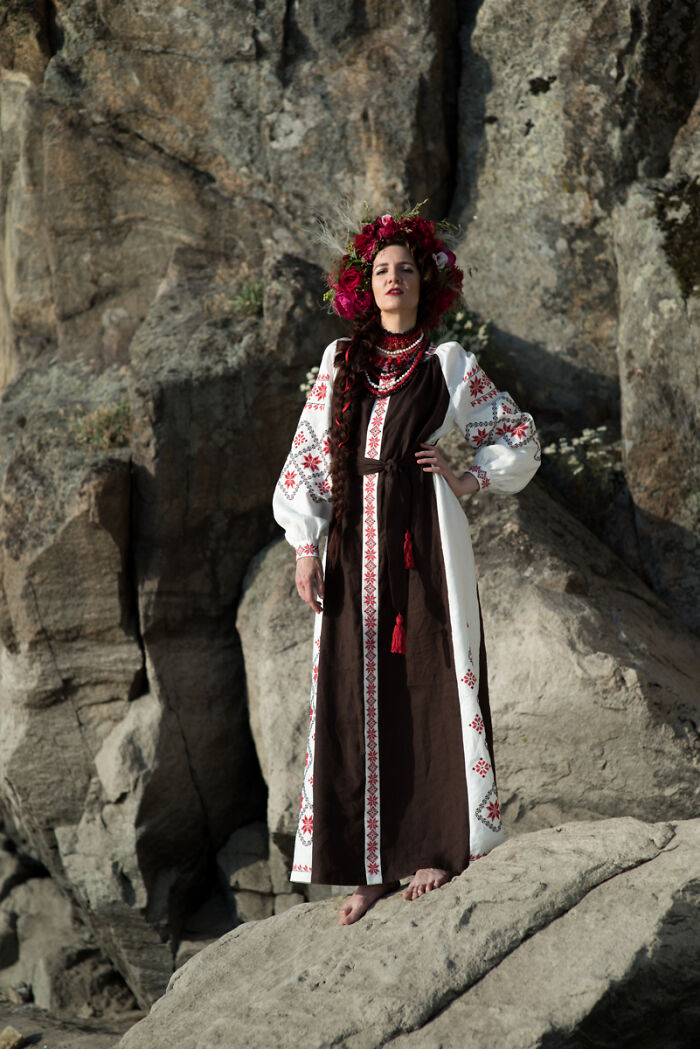
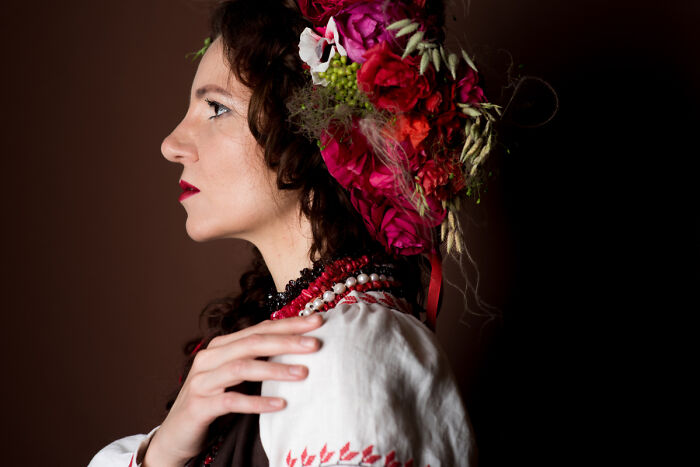
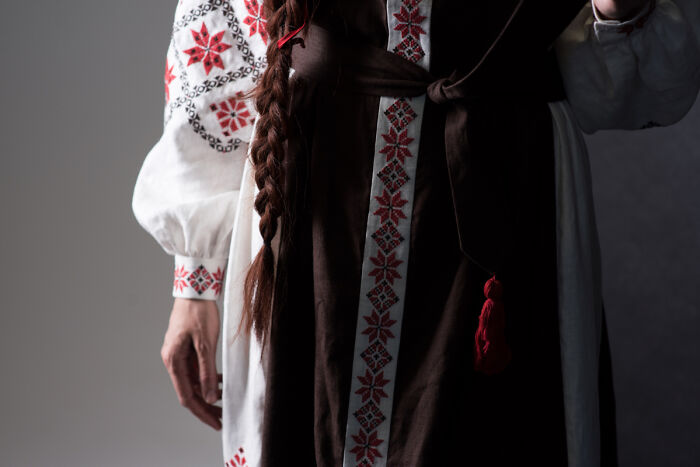
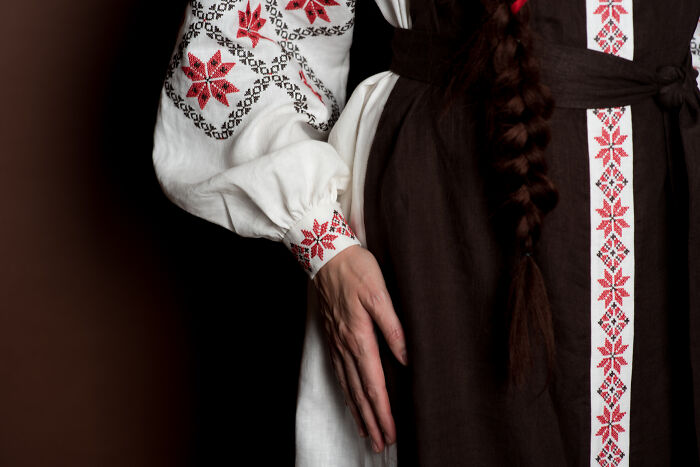
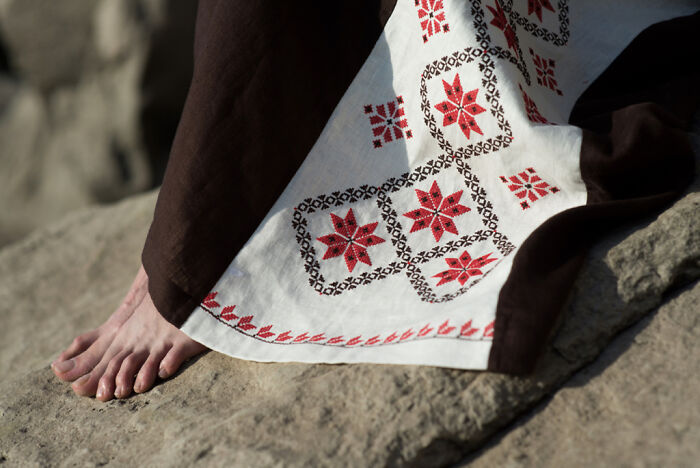
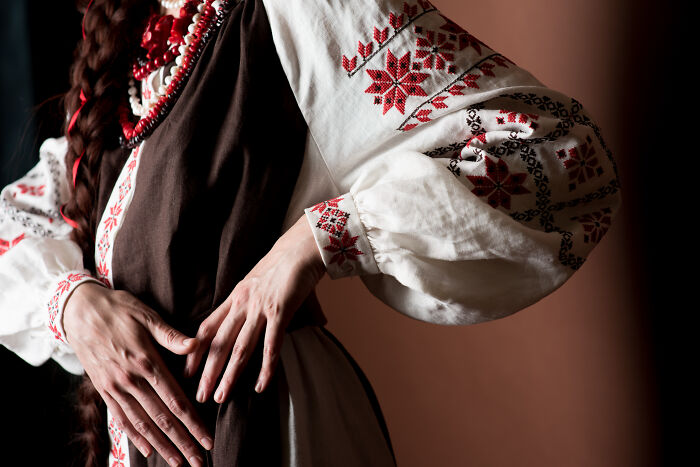
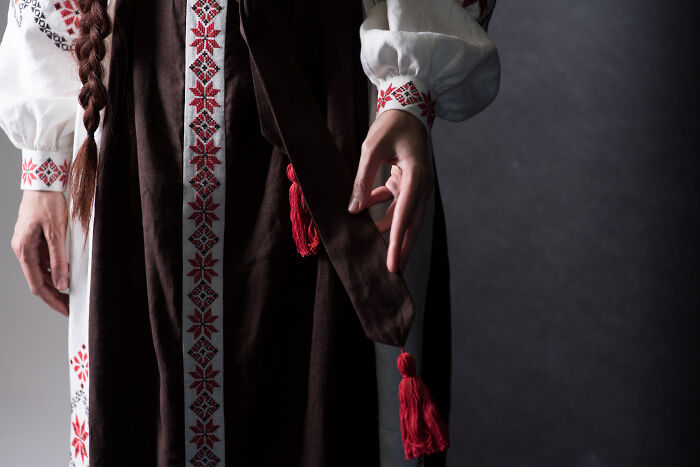
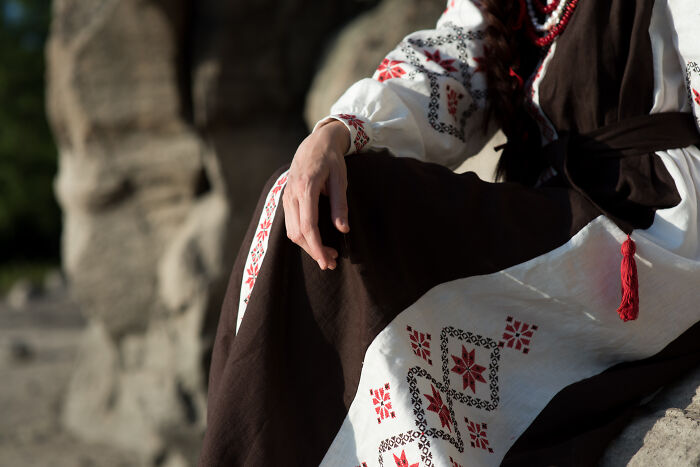
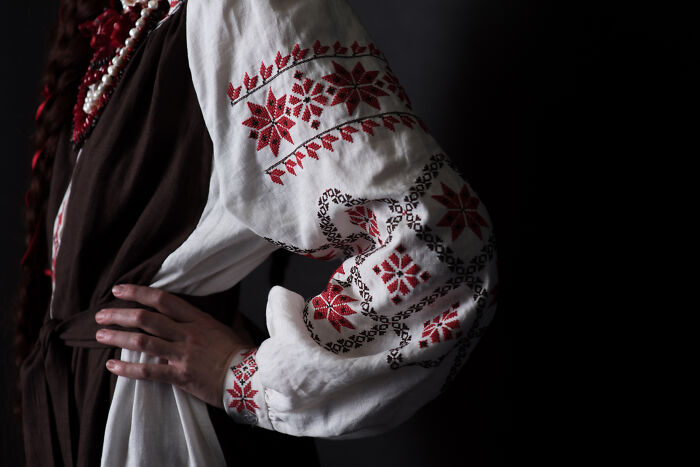
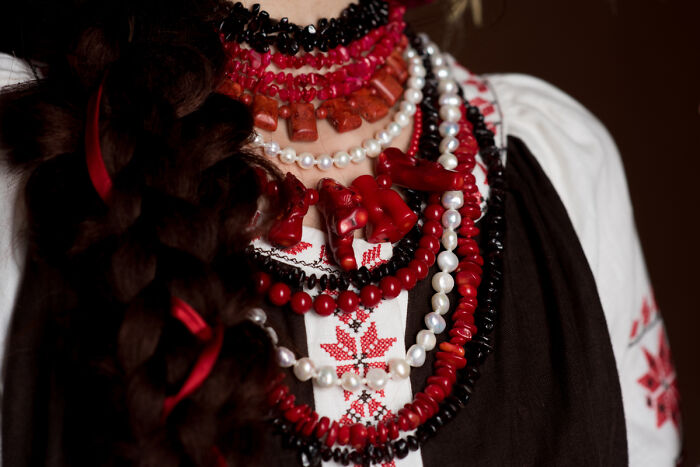
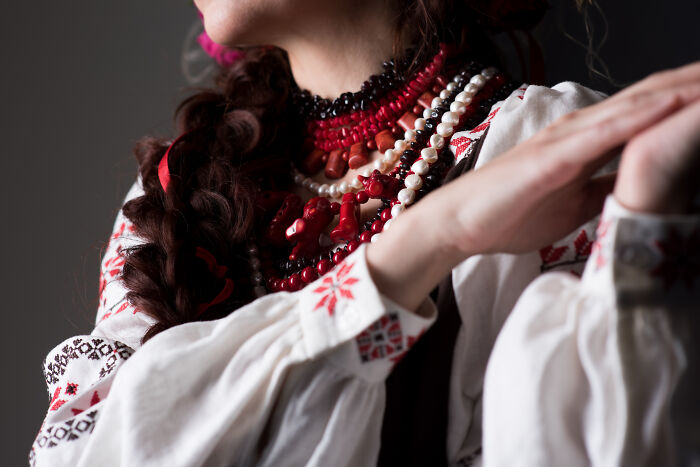
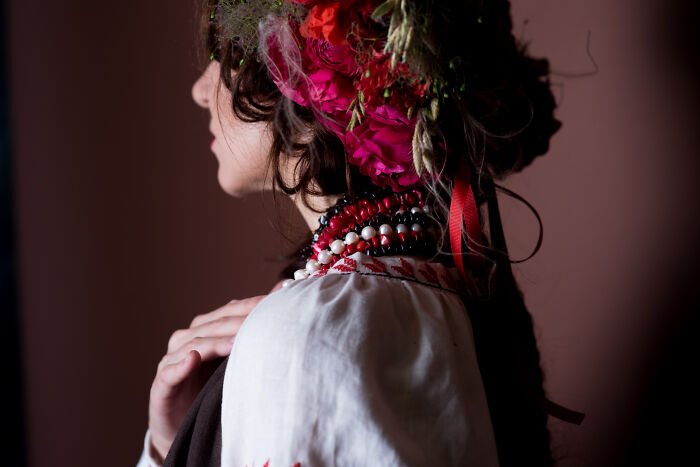
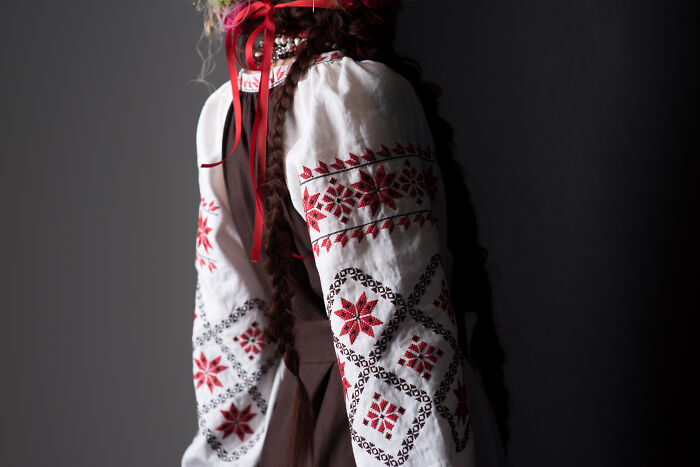
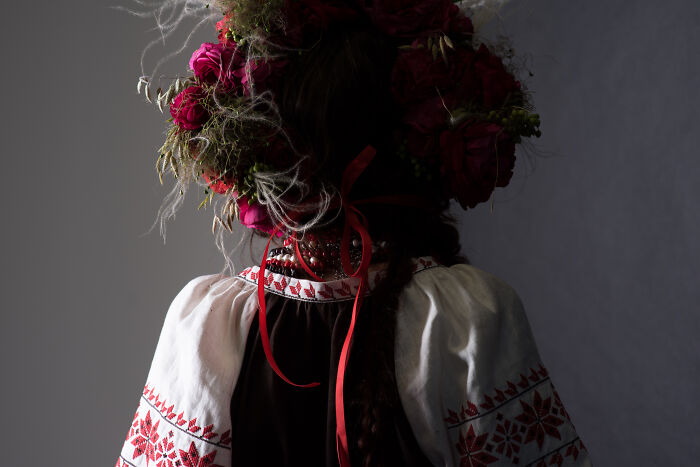
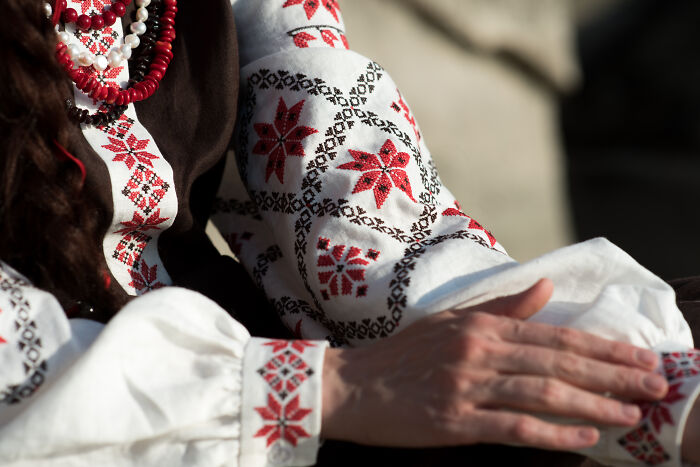
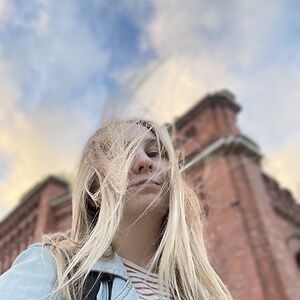
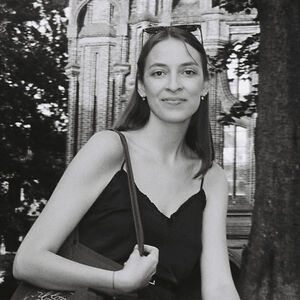




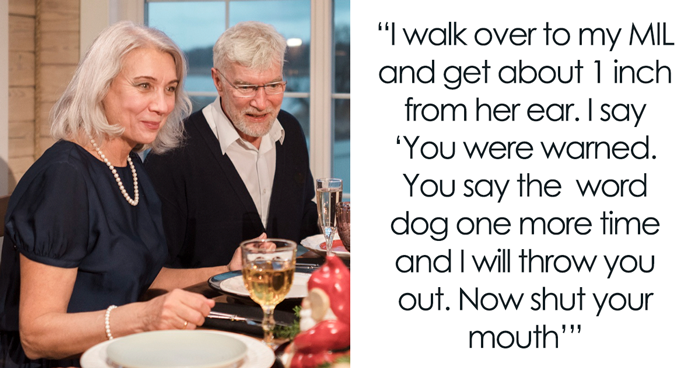


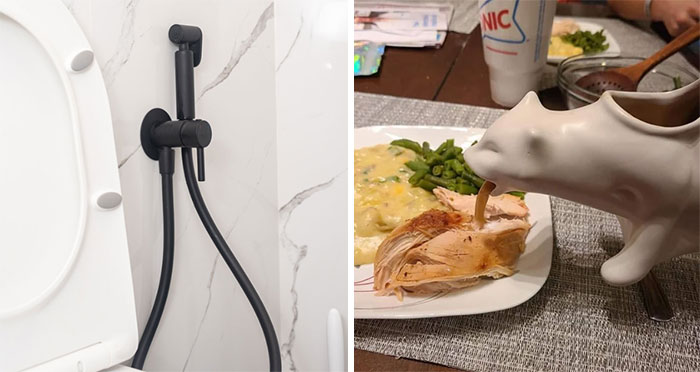
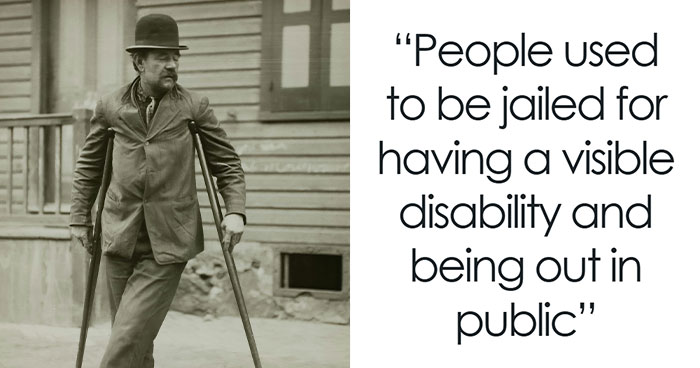
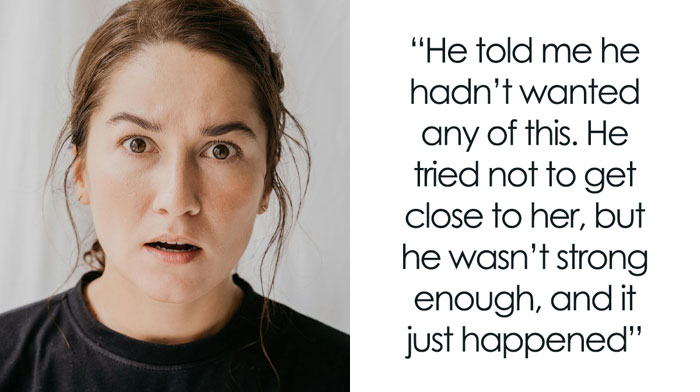
































15
0